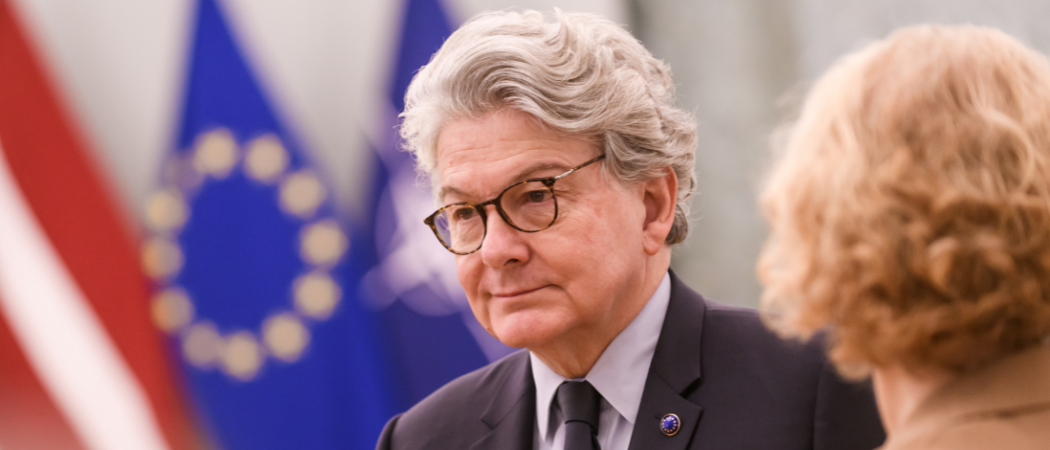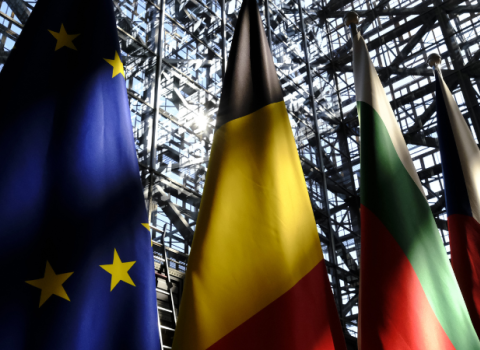The fund is intended to stimulate investment in SMEs that are working to develop novel defence technologies

Thierry Breton, EU Commissioner for Internal Market. Photo: Gints Ivuskans / European Union
The European Commission and the European Investment Fund (EIF) have launched the Defence Equity Facility (DEF), a €175 million fund to increase access to capital for small companies in the sector.
This is "a first step in improving access to finance," said Thierry Breton, EU Commissioner for Internal Market. The initiative, “will contribute to sending a positive signal to the market and stimulate private investment in support of defence innovation,” he said at the launch of the fund last week.
The €175 million will be invested between 2024 and 2027 to stimulate the development of an ecosystem of private funds investing in security and defence innovation. The aim is to leverage in €500 million by acting as the cornerstone investor in independently managed private equity and venture capital funds.
Funds backed by DEF will invest in SMEs and start-ups, or mid-cap companies that are developing innovative technologies with dual-use potential, such as cyber, space, ground, and underwater systems and medical response.
The Commission is putting in €100 million from the European Defence Fund, with the balance coming from the European Investment Fund.
Burkard Schmitt, defence and security director of the European defence industry association ASD welcomed the launch of DEF as a way of improving the industry’s access to finance for SMEs and mid-caps.
“This access is essential for industry to adjust its capacities to the challenges that emerged with the Russian aggression against Ukraine,” Schmitt told Science|Business. ASD hopes that DEF will be a milestone towards the full use of the European Investment Bank’s potential to support the Europe’s defence technologies and the related industrial base.
Dual-use technologies
Last year, other funds were allocated to support start-ups and SME to work on defence and security applications of technologies being developed for civilian use.
For example, NATO set up the Defence Innovation Accelerator for the North Atlantic (DIANA), to speed up development of critical technologies through accelerator sites. To date 44 companies have been awarded funding from DIANA.
The NATO DIANA Estonian Accelerator was officially opened at the Tehnopol Business and Science Park in Tallinn last week. It will host nine companies working on various technologies including cyber defence and energy resilience.
Following the Russian invasion of Ukraine EDF has shifted the focus of its funds from investing in expeditionary capabilities that are required to support military invasion of a foreign territory, in favour of technologies that meet the needs of European militaries today as they face conventional warfare in Europe.
“Waking up has been painfully slow,” Estonian MEP Riho Terras told Science|Business, “I can only welcome all European Commission initiatives designed to strengthen the EU defence industry potential.” Terras is the author of a European Parliament report, Critical technologies for security and defence: state of play and future challenges.
The EU is ramping up production of ammunition to supply Ukraine, but Terras said new defence technologies are needed as well. Innovation should not be neglected in the light of the need for more weapons, he said. “I hope the European Commission and Mr. Breton have the phone numbers of the bigger bank executives,” said Terras. It is time to change the understanding vis-a-vis financing [of the] defence industry.”





 A unique international forum for public research organisations and companies to connect their external engagement with strategic interests around their R&D system.
A unique international forum for public research organisations and companies to connect their external engagement with strategic interests around their R&D system.